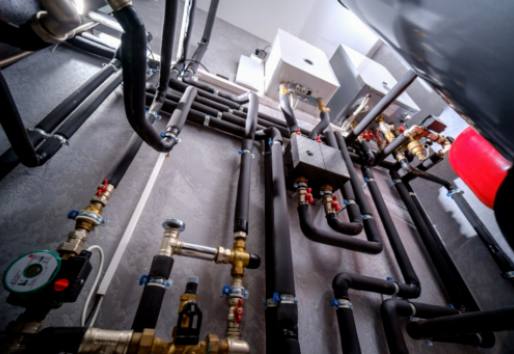The Importance of Proper Maintenance for Shower and Bathtub Plumbing
22 November 2025 by Miles H.Proper maintenance of shower and bathtub plumbing is essential for a modern home. Understanding the basics of shower and bathtub plumbing, recognizing signs of plumbing issues, and knowing the risks of neglecting maintenance are important aspects of maintaining a properly functioning plumbing system. Regular maintenance not only prevents potential problems and costly repairs, but also ensures a clean and efficient water flow in your bathroom fixtures. In this article, we will discuss the importance of proper maintenance for shower and bathtub plumbing, as well as provide some DIY maintenance tips and when to call a professional for repairs.

Understanding Shower and Bathtub Plumbing Basics
It involves a complex system of pipes, valves, and fixtures that work together to deliver water for bathing. The plumbing system for showers and tubs also includes drain lines that carry wastewater away from the fixtures. The basic components of shower and bathtub plumbing include hot and cold water supply lines, a mixing valve to regulate water temperature, a showerhead or bathtub faucet, and a drain. These components work together to provide a consistent and reliable flow of water for bathing. Proper installation and maintenance of shower and bathtub plumbing is essential for ensuring efficient and reliable performance. Understanding the basics of shower and bathtub plumbing can help homeowners identify issues and perform basic maintenance tasks to prevent costly repairs.Signs of Plumbing Issues in Showers and Bathtubs
Some common signs of plumbing issues in these areas include slow drainage, low water pressure, leaks, strange noises, and foul odors. Additionally, water pooling around the base of the shower or bathtub can be indicative of a potential plumbing problem. It's important to be attentive to these signs and address any issues promptly to avoid further damage and costly repairs in the future.Risks of Neglecting Maintenance for Bath and Shower Fixtures
Neglecting maintenance for bath and shower fixtures can lead to a number of risks and problems within the home. From water damage to mold and mildew growth, the repercussions of ignoring the maintenance of these fixtures can be significant. Leaking pipes and fixtures can also lead to increased water bills and potential damage to the surrounding areas of the home. Additionally, neglecting maintenance can result in decreased water pressure and potential clogs within the plumbing system, which can be inconvenient and costly to repair. Overall, failing to properly maintain bath and shower fixtures can lead to a variety of costly and time-consuming issues that could have been avoided with regular upkeep.Benefits of Regular Plumbing Maintenance for Showers and Tubs
Regular plumbing maintenance for showers and tubs offers numerous benefits for homeowners. By staying on top of maintenance tasks, you can prevent costly repairs, maintain the functionality of your fixtures, and ensure the safety of your family. Proper maintenance also helps to prolong the lifespan of your shower and bathtub plumbing, saving you money in the long run. Additionally, regular maintenance can help to conserve water and energy, leading to lower utility bills and a more eco-friendly home. Overall, investing time and effort into maintaining your shower and bathtub plumbing can provide peace of mind and long-term savings.DIY Maintenance Tips for Shower and Bathtub Plumbing
Taking care of the plumbing in your shower and bathtub is essential for ensuring that these fixtures function properly and last for many years. While regular professional maintenance is important, there are also DIY maintenance tasks that you can perform to keep your shower and bathtub plumbing in good condition. One important DIY maintenance task is to regularly clean the showerhead and faucet aerator to remove any mineral deposits that can affect water flow. You can do this by soaking the showerhead and aerator in a solution of vinegar and water to dissolve the buildup, and then scrubbing them with a brush to remove any remaining residue. Another DIY maintenance tip is to regularly check for and repair any leaks in your shower and bathtub fixtures. This can involve inspecting the seals and gaskets for signs of wear and tear, and replacing them if necessary. It also means checking the grout and caulking around the bathtub and shower to ensure that it remains watertight. It's also important to periodically flush out your shower and bathtub drains to remove any built-up hair, soap scum, and other debris that can cause clogs. This can be done using a homemade drain cleaner made of baking soda and vinegar, followed by hot water to flush out the pipes. Additionally, keeping an eye on the water pressure in your shower and bathtub can help you identify any potential plumbing issues. If you notice a decrease in water pressure, it could indicate a clog or other problem in the pipes that needs attention. By performing these DIY maintenance tasks regularly, you can help prevent plumbing issues in your shower and bathtub, and ensure that these fixtures continue to function properly for years to come. However, if you do encounter any significant plumbing problems that are beyond your ability to fix, it's important to call a professional plumber to address the issue.When to Call a Professional for Shower and Bathtub Repairs
If you notice any of the following signs, it is important to seek the expertise of a plumber:1. Persistent leaks that cannot be fixed with simple repairs
2. Reduced water pressure or slow drainage
3. Strange noises coming from the pipes or fixtures
4. Visible signs of water damage or mold
5. Foul odors coming from the drains
6. Issues with the water temperature or lack of hot water In these situations, it is best to leave the repairs to a trained professional who can accurately diagnose and fix the plumbing issues without causing further damage. A licensed plumber will have the knowledge and tools necessary to safely and effectively address any problems with the shower and bathtub plumbing.